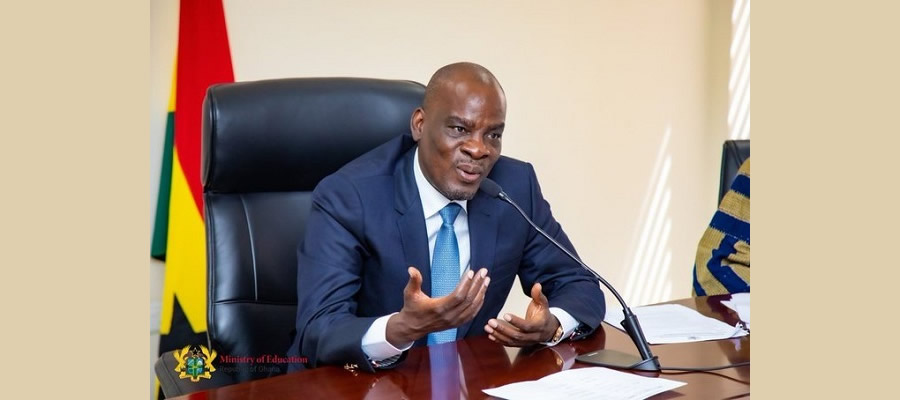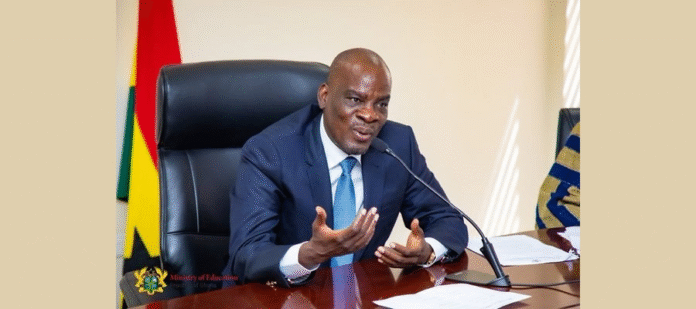
The YAFO Institute has called on Parliament to deepen the decentralisation focus of the Ghana Scholarships Authority Bill by giving local educators, particularly head teachers, a stronger role in identifying and supporting needy but brilliant students.
In a statement, the policy and research think tank commended Parliament for considering the bill, which seeks to overhaul the management and disbursement of government scholarships across the country.
The bill is currently under review by the Joint Committee on Education, Public Administration, and State Interests and Civil Society Organizations.
According to the Institute, while the bill represents a critical step towards transparency and merit-based scholarship allocation, it must go further in empowering communities to take part in the process.
“We believe that education is the foundation for sustainable development,” the statement read. “Bringing the process closer to the communities, especially through head teachers who are familiar with students’ realities, will ensure the scholarships truly benefit the most deserving.”
The Ghana Scholarships Authority Bill proposes a centralized board that includes representatives from key ministries, the Attorney General’s office, the Association of Ghana Industries, and presidential nominees.
It also emphasizes focus areas like STEM and aligns scholarship awards with national development priorities through coordination with the National Development Planning Commission.
But the YAFO Institute believes the lack of grassroots representation on the board is a gap that could limit the impact of the bill.
“Head teachers, particularly at the basic level, know which students are academically capable but held back by financial challenges. Including them in the decision-making process will bridge the gap between policy and reality,” the Institute said.
To this end, the YAFO Institute has proposed the creation of a nomination system where head teachers in both public and private basic schools are formally involved in identifying qualified students.
This would allow teachers to recommend students who demonstrate academic excellence but face economic hardship, ensuring no talent is overlooked due to location or lack of access to information.
The Institute is also advocating for training programs to help head teachers understand scholarship criteria, navigate online application systems, and effectively engage in the selection process. In rural areas, this may include providing digital tools and internet access to help bridge the technology gap and ensure their participation.
To promote fairness and reduce potential abuse, YAFO is recommending the formation of district-level verification committees. These would consist of head teachers, education officers, and respected community leaders who work together to screen scholarship nominations and confirm eligibility. This structure would also allow for a feedback mechanism to improve the system over time.
The Institute believes it is equally important to recognize the efforts of educators who identify deserving students. Schools and teachers that consistently produce successful scholarship recipients could benefit from professional development opportunities, public recognition, or educational resources that support their efforts.
The institute also emphasized the need for strong public awareness, especially at the basic school level. They propose using school assemblies, radio, and community forums to educate students, teachers, and parents about scholarship opportunities and the application process.
In addition, the Institute suggests aligning scholarships with both STEM and vocational pathways. This, they believe, will create more opportunities for students who show potential in technical and hands-on fields, not just traditional academic areas.
Local industries and technical institutions could also play a role by providing mentorship and career exposure to scholarship recipients.
Education Minister Haruna Iddrisu, who presented the bill to Parliament, has stated that the legislation is intended to eliminate political patronage, nepotism, and corruption in the scholarship process. YAFO’s recommendations support that goal by anchoring the system in community knowledge and firsthand experience.
The Institute stressed that these proposals align with Ghana’s Shared Growth and Development Agenda and the United Nations Sustainable Development Goals, particularly Goal Four, which calls for inclusive and equitable quality education for all.
As Parliament continues to examine the Ghana Scholarships Authority Bill, YAFO is urging lawmakers to include stronger provisions for grassroots involvement. They are also calling on the Ministry of Education and the Scholarships Authority to pilot this model in selected regions before implementing it nationwide.
The Institute expressed readiness to work with government, policymakers, the Ghana Education Service, civil society organizations, and private school associations to shape a truly inclusive and impactful scholarship framework.
“The Ghana Scholarships Authority Bill has the power to transform access to education. But for it to truly serve its purpose, it must include the voices of those who see and nurture potential every day—our head teachers,” the statement concluded.
YAFO remains committed to removing the financial barriers that keep thousands of talented young Ghanaians from accessing the education they deserve and contributing meaningfully to national development.
DISCLAIMER: The Views, Comments, Opinions, Contributions and Statements made by Readers and Contributors on this platform do not necessarily represent the views or policy of Multimedia Group Limited.
DISCLAIMER: The Views, Comments, Opinions, Contributions and Statements made by Readers and Contributors on this platform do not necessarily represent the views or policy of Multimedia Group Limited.


